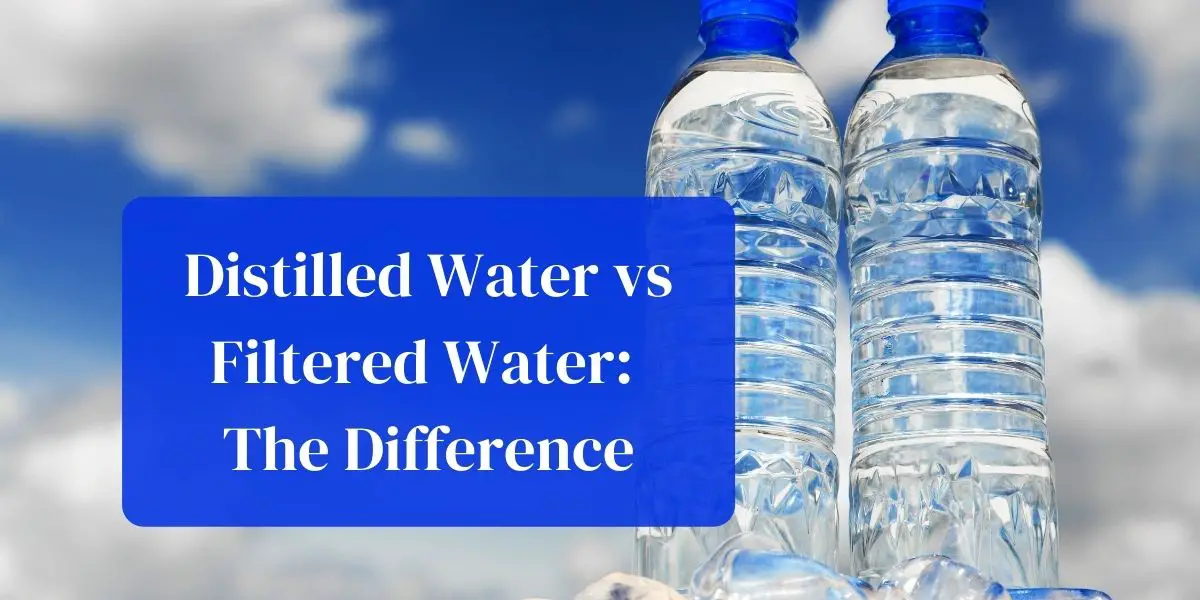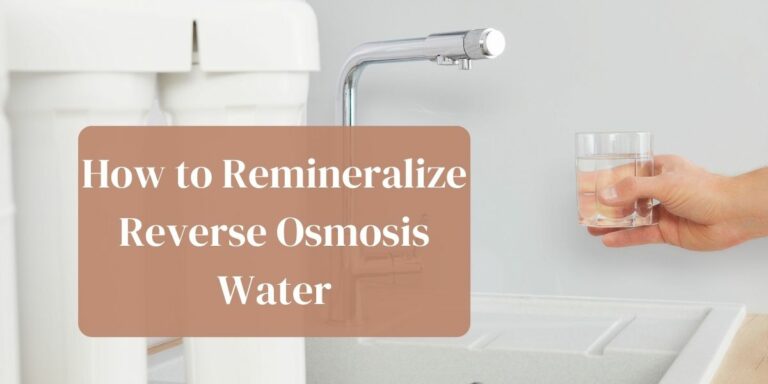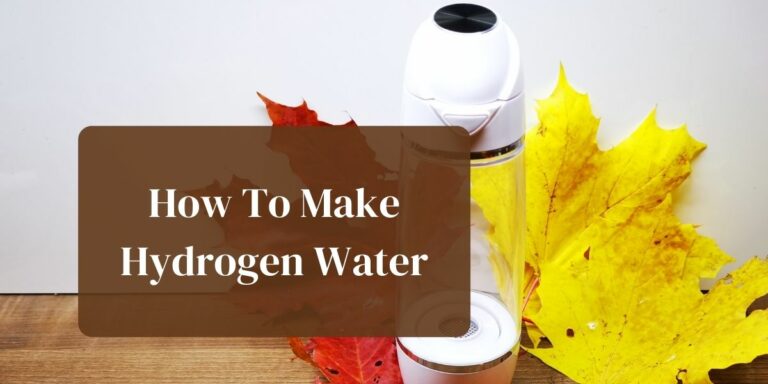As more people start to drink more water on a daily basis, they also start to look at the different types of water. Even though scientists may be familiar with the difference between distilled water and filtered water, most people who aren?t in a scientific profession are not. If you want to get familiar with the differences between distilled and filtered water, then be sure to read on.
Table of Contents
- Is Filtered Water The Same As Distilled Water?
- Is It Better To Drink Distilled Water?
- Tap water versus distilled water
- Why Should You Not Drink Distilled Water?
- Which Water Is Best For Me?
Is Filtered Water The Same As Distilled Water?
Filtered water is not the same thing as distilled water. As there are different types of water, it is important to gain knowledge about each type, so you can make a more informed decision about the type of water you use.
Filtered water
When someone refers to filtered water, they are referring to water that has gone through all the basic filtration processes. However, it is important to realize that this type of water can get into contact with various chemicals as well; this to ensure that the water meets the safe drinking water standards of the government.
You can find filtered water in the water mains in your home, but it is also sold in bottles. There is a small difference between the two though, as the water being sold in bottles often goes through additional filtration processes to meet the standards of the EPA (United States Environmental Protection Agency).
Micron filtration water
This type of water goes through a microscopic filter. Because of its size, it can filter out a whole lot more than a basic filtration process. Micron filtration processes are often implemented when chemical compounds and specific microbes need to be removed.
Micron filtration water can often be referred to as purified water as well. To be legally called purified water, the product can only contain less than ten parts per million impurities.
Distilled water
Most scientists are familiar with distilled water, because this is where this type of water is often used. To get distilled water, the water must go through a specific filtration and treatment process.
To get distilled water, the water is first boiled until steam is obtained. Then, the steam condensates and is captured in a special container. Because of the boiling process, water is made completely free of contaminants, but also salt, minerals, metals, and other compounds that can give water its taste.
Is It Better To Drink Distilled Water?
Even though distilled water is safe for consumption, most people do not enjoy the taste of the water. As mentioned earlier, the distillation process actually removes most of the compounds inside water, which removes its taste almost completely.
There are some health websites that claim distilled water has many benefits for body detoxification. On the other hand, some people claim that distilled water can actually remove all the minerals from the body. While these two statements are myths, there are some things you need to know about distilled water.
No calcium or magnesium
Tap water contains minerals such as calcium and magnesium, but these are removed from distilled water. Even though they are present in small amounts, these do provide some health benefits.
Mineral balance
When minerals are removed from distilled water, the water will try to capture minerals in any way it can. Some scientists believe that distilled water can remove minuscule mineral levels from the teeth when distilled water is consumed.
Because of the fact distilled water will draw minerals from where it can, it is very difficult to properly store distilled water. Be careful that the container you use does not contain any minerals that the water could absorb.
Tap water versus distilled water
If you live in an area where the water supply is contaminated with chemicals and pesticides, drinking distilled water could be the safer option. However, you need to remember that distilled water will not contain any calcium, magnesium and other minerals you may require.
Why Should You Not Drink Distilled Water?
Drinking just distilled water is not recommended by most medical professionals. While drinking the occasional glass of distilled water is not a problem, there are some instances where distilled water could be harmful.
Lack of minerals
Athletes who work out on a regular basis could encounter problems if they hydrate with distilled water. As explained earlier, distilled water does not contain any minerals, and this could be just the problem.
When we sweat, we lose minerals and those need to be replaced by rehydrating with water. Evidently, this water needs to contain minerals. So, drinking distilled water after a workout session will do nothing to replace those lost minerals.
It is no problem to drink the occasional glass of distilled water, mainly because we can obtain minerals from the food we consume too. However, if you solely drink distilled water, then your mineral levels can start to suffer. So, if you do want to consume distilled water, always make sure it is a part of a balanced diet.
Acidosis
People who solely consume distilled water and do not have a good diet could eventually contract a problem called acidosis. Because distilled water has a more acidic PH value, it could start to influence the acidity of the blood in the body.
Acidosis occurs when someone does not get sufficient minerals and electrolytes, which are missing from distilled water. Distilled water has a PH value of 7.5; this compared to 7.35 and 7.45 in the blood. When the blood gets an acidity level below 7.35, you are suffering from acidosis.
The condition known as acidosis ? combined with an imbalance in electrolytes and minerals ? can have further and serious health consequences. It has been associated with excessive fatigue, fluid retention, deficiencies, cramps, headaches, irregular heartrate, and even organ failure.
Not so environmentally friendly
Distilled water is not that good for the environment, as remaining residue is hard water with a high saline content. Evidently, if this ends up in the water supply, it could have some influence on the eco-system.
Does A Brita Filter Distill Water?
A Brita filter does not distill water, as it falls under the classification of filtered water. Using a Brita filter has numerous benefits. It reduces compounds such as limescale, carbonate, chlorine, lead and copper. However, the water does not lose its minerals completely, which makes it safe for consumption.
When filtering with a Brita filter, it is important to store your filtered water appropriately. Simply add the water to a clean jug and keep it in the fridge until you are ready to consume it. Ideally, you want to avoid contact with direct sunlight and consume the water within 24 hours after the filtering process.
We must mention that the Brita filter is completely free of BPAs. The filter is not made with polycarbonate, which means they do not release BPAs when coming in contact with water. All the materials used in Brita products are also certified food grade quality; this makes them safe to use in any household.
Please note that the water filtered with a Brita filter is not solely suitable for consumption, as you could also use it in a steam iron. Many steam irons are susceptible to limescale build-up. In fact, this limescale is often the cause of steam irons failing prematurely. So, by using filtered water from a Brita filter, you can reduce the build-up of limescale and extend the lifespan of your iron.
Brita filters also reduce the temporary hardness of water, which can influence the taste of the drinking water. It also makes the water more suitable for other appliances such as kettles, coffee makers, and even washers. Evidently, it depends on where you have your Brita filter installed.
Finally, Brita filters are also wonderful for the environment; this opposed to distilled water. By using a Brita filter system, you can avoid purchasing plastic bottles of water. As you know, plastic causes havoc on our ocean and our environment, so you directly contribute to a better environment by using a Brita filter. I addition to that, the Brita water filters can be fully recycled. So, even when your filter is no longer being used, it will not remain on a landfill or a special waste storage facility for years on end. Instead, our filter can be recycled quite easily. This enables you to once again contribute to the environment.
Which Water Is Best For Me?
Most people should have a water filter for their tap water, as there can be higher levels of chemicals that give your water an unpleasant and sharp taste. It can also be helpful for people who are sensitive to certain contaminants that can be present in tap water, even when deemed safe to drink.
If you have concerns about your tap water, but not really sure what it contains, you can easily pick up a water test. These water tests are affordable and can be executed at home. They can prove beneficial if you have problems with certain contaminants or when you start to feel unwell after consuming some water from the tap.







